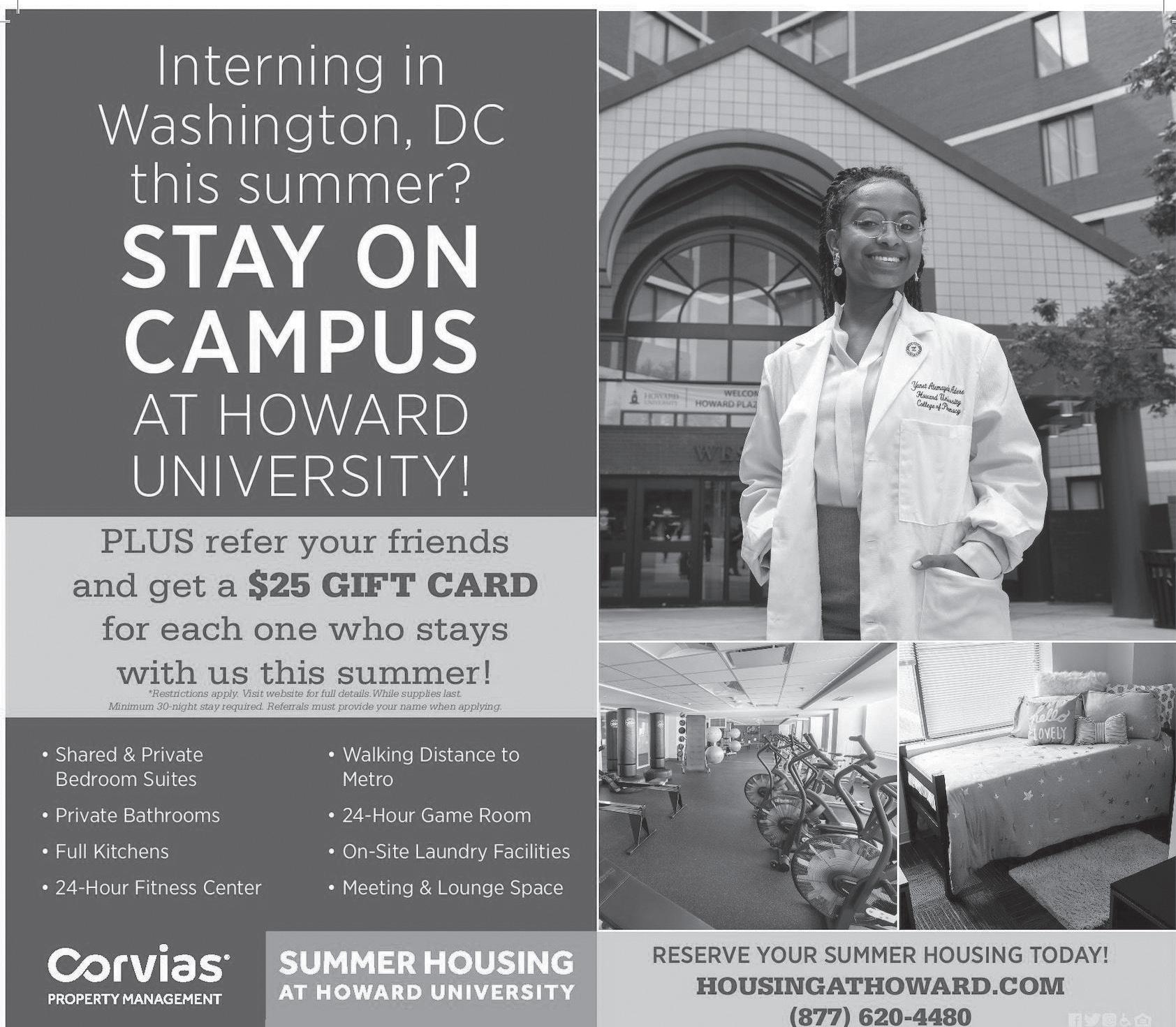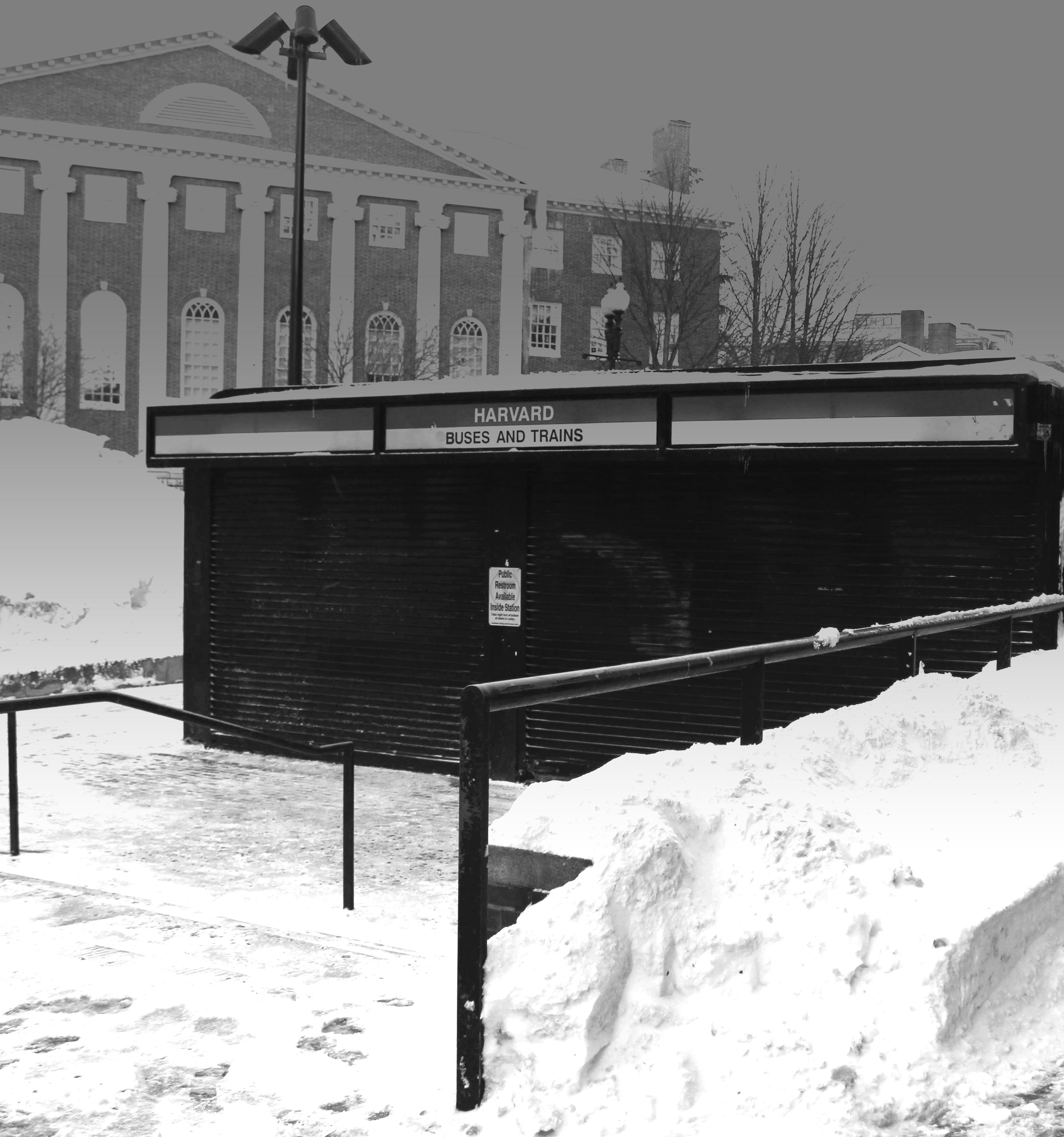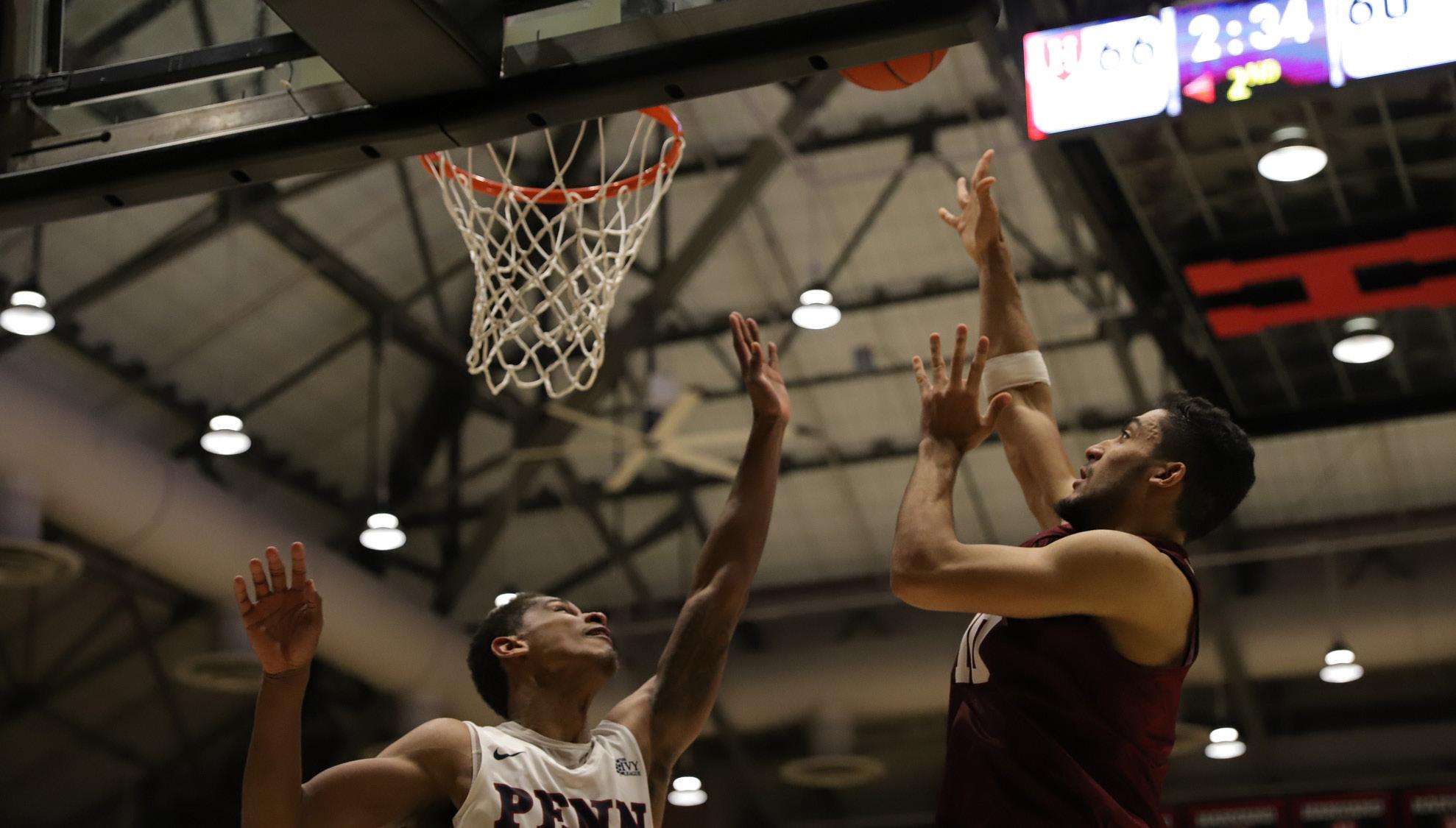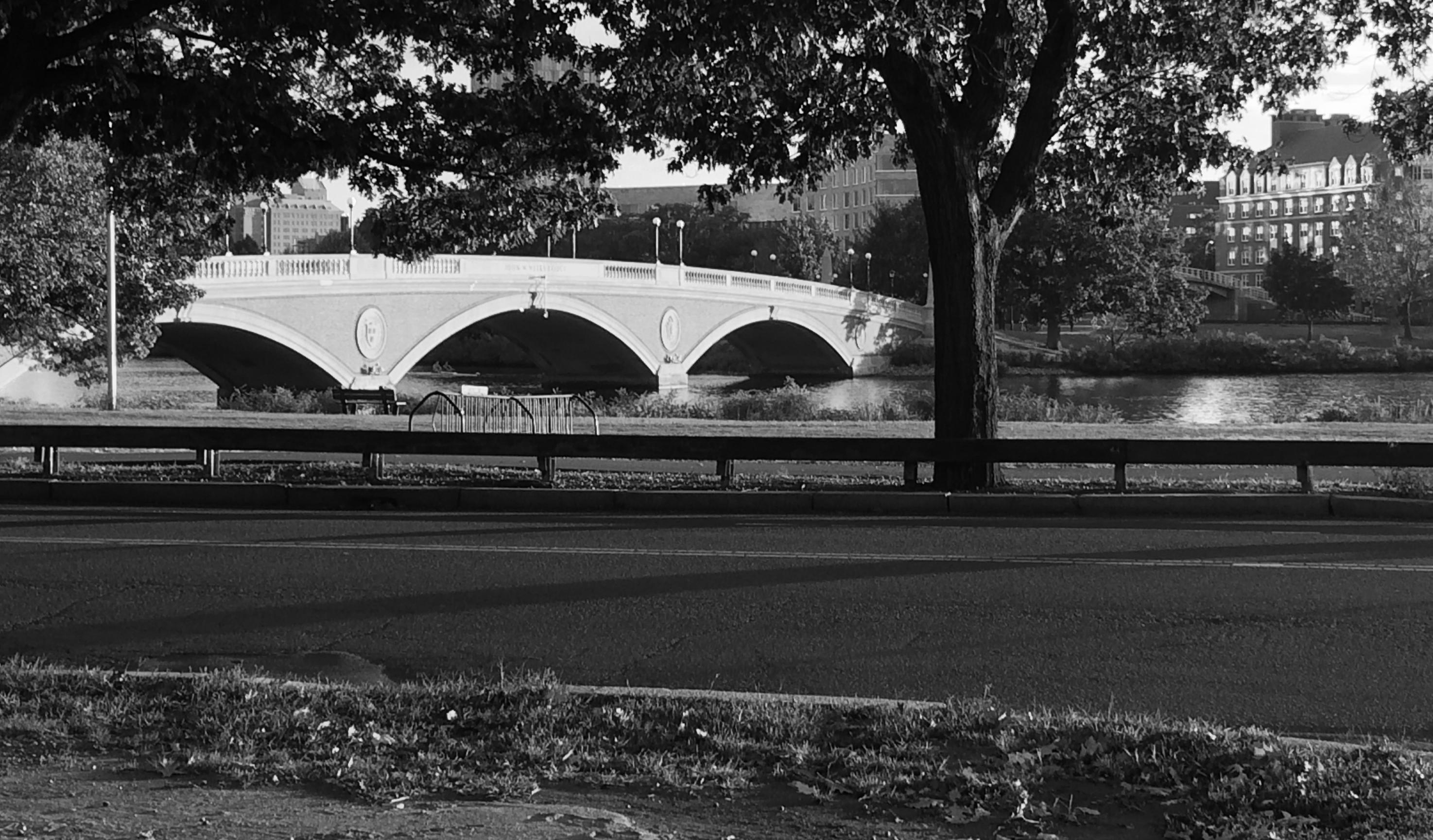
20 minute read
News
Harvard Law School Hosts Forum on Free Speech
By CHARLES XU CRIMSON STAFF WRITER
A panel of speakers discussed the role and limits of free speech on college campuses at the inaugural Harvard Law School Rappaport Forum on Friday. Lisa Feldman Barrett, a psychology professor at Northeastern University, and Jonathan Haidt, an ethical leadership professor at New York University, discussed the definition of violent speech and how the parameters of free speech have changed on college campuses with the advent of the internet. The Law School launched the Rappaport Forum to promote discussion on current affairs. The Phyllis & Jerome Lyle Rappaport Foundation funded the series to honor Jerry L. Rappaport ’47, who founded the HLS Forum in 1946 to invite speakers to address issues in the world post-World War II.
“In a society that is badly divided, this forum was served as a reminder of how important it is, and how much can be learned from the respectful clash of ideas,” Harvard Law School Dean John F. Manning ’82 said at the beginning of the event.
Haidt has previously commented extensively on the role of free speech on college campuses. In 2018, he co-wrote “The Coddling of the American Mind: How Good Intentions and Bad Ideas Are Setting Up a Generation for Failure,” arguing against trigger warnings and safe spaces. At the Law School event, Haidt drew a distinction between the idea of free speech in public spaces and free speech on college campuses. He argued universities should follow a different set of parameters regarding free speech than other public spaces.
“You can’t just come here and say, you know, the Newtown shootings never happened,” Haidt said. “There’s no point in having that on a college campus. And so I think we all agree that a scholar who had presented work that some people find horrible, hateful, or upsetting if still playing by the rules and should be allowed — is a legitimate person to invite.” Barrett said educators should be mindful of students’ backgrounds and tolerance for stress when engaging in difficult topics and conversation.
“The truth is honestly that some of us are better equipped just because of our life circumstances to deal with than others,” she said. “It doesn’t mean that they are off the hook for any responsibility, but he does mean that there’s a context here. And we do well as educators to pay attention to that context where we won’t actually meet the goal that we have.”
She added that she believes campus speech policies should have a basis in science.
“We have evolved as a species to have socially dependent nervous systems,” Barrett said. “That means I can text three words to someone halfway around the world, who can’t hear my voice and can’t see my face, and I can make their heart rate go up.”
“If we all do that — which we do — we regulate each other’s nervous systems, that means we are more responsible actually, for people, then we might like,” she added. Law School student Nathan Wexler said he thought both speakers’ discussion on the parameters of speaker invitations at colleges was productive, adding that he believes universities should have a “clear set of morals about what should be allowed and what shouldn’t be.” Rappaport said in an interview with The Crimson that he hopes both Friday’s event and future forums will engage with “important and frequently divisive public policy issues with opposing sides.”
“It’s in some ways a kind of return to a period of time when you have some bipartisan solutions to problems,” he said. “The middle area is a very lonely place at the present time, so I hope that the dean’s program keeps focusing on issues that are extraordinarily important to the Continental world.”
charles.xu@thecrimson.com
Lisa Feldman Barrett discussed campus speech at the inaugural event of the Harvard Law School Rappaport Forum Friday with Jonathan Haidt . STEVE S. LI—CRIMSON PHOTOGRAPHER
Undergraduate Council Discusses
Student Organization Funding
By KEVIN A. SIMAUCHI and SHARON XU CRIMSON STAFF WRITERS
The Harvard Undergraduate Council discussed funding options for student organizations under executive session — a private, off-the-record session of the Council, whose meetings are normally open to the public — at Sunday’s meeting.
Eliot House representative and UC Finance Committee Chair Rukmini “Mini” Ganesh ’22 motioned for the Council to be brought into executive session — where only UC representatives are allowed — twice; once in order to deliver routine committee updates, and again to discuss legislation for funding for student organizations.
According to the meeting’s agenda, during the executive session, the UC discussed a Finance Committee-sponsored act in response to the committee not having enough money in its checking account to cover this semester’s grants.
The act would allocate $21,000 from the Burst Pack, which is for discretionary spending purposes, to the Finance Committee. This would allow the committee access to additional funds for student organizations’ semester grants.
After the meeting, Currier House representative Jack M. Swanson ’22 expressed confusion over why the Council needed to go into executive session twice. “There is nothing we’re going to discuss that should be fully confidential,” Swanson said. The meeting also established more ties to the campus’s theatre community, unanimously passing a block grant of $9,000 to the Harvard Radcliffe Dramatics Club. The grant, which would be used for productions put on by the HRDC, would come out of the Council’s Burst Pack, which is budgeted at more than $49,000.
Ganesh clarified her reasons for the proposal.
“We normally fund theater out of the Finance Committee, but what we’re trying to do here is to have an expressed line item in our budget for theater like we do for PHBA,” Ganesh said.
The UC also unanimously voted to restructure its Finance Committee. Ganesh and Kirkland House representative Carter H. Nakamoto ’21 co-sponsored the legislation.
Previously, the vice chair and secretary position of the Finance Committee were two separate positions but were functionally treated as a single position. With this new amendment to the bylaws of the Council, the vice chair and secretary were merged into a single position.
“It’s a one person job,” Ganesh said. The Council also unanimously approved an act to publicize the College X Change program — which UC treasurer Noah Harris ’22 described as “Ebay for students” — to Harvard undergraduates.
The UC continued to promote outreach between the Council and the students through funding caucus events. Last week, the UC unanimously approved legislation that expanded the power of the caucus system.
At Sunday’s meeting, the body also voted to allocate $300 for a “Meet the International Caucus” event and another $300 for a “Meet the Asian American Caucus” event.
Sunday’s meeting was also the first for newly elected representatives, who won seats in last week’s midterm elections.
Elm Yard representative Emilio J. De Leon ’23 expressed excitement over his first meeting. “I feel like as a representative, I’d be able to really contribute input, and it will be directly heard by the executive board,” De Leon said. “So as you can tell, it was a pretty productive climate, and a lot got done in the two hours that I was here. I really enjoyed it.”
sharon.xu@thecrimson.com

Like The Crimson Facebook.com/ TheHarvardCrimson
PROTESTERS FROM PAGE 1
Activists Protest During Junior Family Weekend
opportunity to speak with parents during their visit to Harvard,” Newton. Larry D. Kruguer – a parent who attended the remarks — said he was “not 100 percent sure” that he felt the speech was an appropriate venue for the protest.
“As it became more prolonged, I think to some degree it may have had a reverse effect, in the sense that it may have been a little bit overkill to some people in the audience not knowing what it was all about,” Kruguer said.
“It could be looked upon as not appropriate of the occasion, versus doing it as people are walking out, or providing the opportunity for more one-onone discussion.”
Still, Kruguer said he understood why students wanted to protest. He added that he saw student activists at other events during Junior Families Weekend.
“It was a little surprising, but I get it, they’re obviously trying to get maximum exposure and try to create awareness for their cause,” he said.
On Sunday, Fossil Fuel Divest Harvard also held an “oil spill” demonstration in the Smith Campus Center, per a post the group made to its Facebook. In the post, the group encouraged parents to send letters to President Bacow about divestment.
“While Harvard showed parents how it’s educating their children to be the world’s next citizen leaders, we made sure to talk with parents highlight the unethical investments in the fossil fuel industry that make Harvard anything but a leader on the climate crisis,” the post reads.The Harvard Ethic Studies Coalition, Fossil Fuel Divest Harvard, Harvard Graduate Students Union-United Automobile Workers, the Palestine Solidarity Committee, Harvard Out of Occupied Palestine, and the Task Force on Asian and Pacific American Studies did not respond to requests for comment.
camille.caldera@thecrimson.com
UC MIDTERM FROM PAGE 1
Undergraduate Council Elects Sixteen Students to Body
new Mather UC reps, Zachary A. Zimmer ’22 and Jinyuan “Ryan” Zhang ’21, a successful semester. “They’re great people, and I know they’ll do good work,” Ramaprasad wrote in an email to The Crimson.
Two write-in candidates won seats on the Council — Maximilian “Max” J. Wang ’20 of Pforzheimer House and Shlomo T. Zach Cahlon ’21 of Winthrop House. The voting period for the election lasted from Tuesday at noon and concluded Friday at noon. More students voted in the midterm election this year than in previous years, with a total of 736 votes cast this year. In comparison, just 154 students voted in the UC midterm elections last year, and 371 students voted in 2018.
Voter turnout was highest in Quincy House with 142 voters, followed by Elm Yard with 123. Winthrop House had the fewest students voting, with only 29 votes cast in the election.
The Council held its first meeting with its new representatives on Sunday. The newly elected representatives for the Undergraduate Council are as follows:
Adams House Ilan M. Goldberg ’20 Cabot House Daniel R. Brunnick ’22 Kirkland House Jacqueline F. Tubbs ’22 Davis J. Tyler-Dudley ’21 Leverett House
John “Jake” E. Leary III ’22 Benjamin S. Rabinowitz ’21 Lowell House Oliver S. York ’21 Mather House Zachary A. Zimmer ’22 Jinyuan “Ryan” Zhang ’21 Pforzheimer House Analli C. Torres ’21 Maximilian “Max” J. Wang ’20 Advertisement Quincy House Matthew S. Miller ’21 Benjamin M. Simon ’22 Winthrop House Angel U. Onuoha-Onyekuru ’20 Schlomo T. Zach Cahlon ’21 Elm Yard Emilio J. De Leon ’23
sharon.xu@thecrimson.com
The sights and sounds of Harvard.

The Crimson @crimson_photo
Panelists Make Case for Reparations at IOP Event
By KEVIN A. SIMAUCHI CONTRIBUTING WRITER
Panelists at a Harvard Kennedy School event Friday urged the U.S. government to pay reparations to the descendants of slaves, calling it a moral responsibility.
Harvard Law School Professor Randall L. Kennedy and Cornell W. Brooks, the former president of the National Association for the Advancement of Colored People, spoke to a crowd of roughly 100 at the event.
Randall L. Kennedy Law School Professor
The talk touched on the viability of reparations and the form they could take.
Brooks referenced past instances of the United States making amends for harms inflicted on marginalized groups, noting that the idea of reparations is not novel.
“We talk about reparations historically speaking, as a standalone, something that is unique as though we don’t have precedent in American history,” Brooks said. “Japanese Americans who were compensated to the tune of $20,000 form a piece of our history where Americans have come to grips with an ugly past and made some kind of attempt of repairing and restoring and making whole.”
Multiple 2020 Democratic presidential candidates have brought the issue into the spotlight by recently coming out in support of exploring the feasibility of reparations.
But Kennedy noted that even mentioning the term ‘reparations’ provokes a “visceral” reaction from many voters.
“There are a good many people in the United States, who when they hear the word reparations, they’re against it,” Kennedy said. “If you ask them, you know, “What is it?”, they might not even be able to tell you what it is.”
“This very term triggers a visceral reaction, negative reaction,” Kennedy added. “Not thousands, not hundreds of thousands, but millions of people.”
Friday’s panel — moderated by David J. Harris, director of a racial justice initiative at Harvard Law School — was the Institute of Politics’ third installation in honor of Black History Month.
The IOP’s slate of February events seek to examine the influence of black political movements on students and faculty. Mari Jones ’21, president of the IOP, said she was delighted that Friday’s event had finally “come to fruition.”
“I think the overall event was impactful and insightful and that everything that the speakers said carried a lot of weight and inspired a lot of thoughts,” Jones said. In response to a question about how biracial individuals should factor into the conversation about reparations, Brooks acknowledged such
Cornell W. Brooks Former NAACP President
questions are “hotly debated.” “With respect to who are the legitimate moral claimants to reparations, I think that should be understood broadly, it should be understood historically, it should not be reduced to the degree of the color one has or does not, or hair texture,” Brooks said.
“In other words, we don’t need to, in the name of reparatory justice, replicate the very thing that has put us in a place where we are today,” Brooks added,
Brooks sought to frame the debate around reparations in terms of the country’s obligation to African Americans, rather than feeding into a narrative of “white guilt” that he called “debilitating,” eliciting applause and shouts of approval from the audience.
“The ways in which we have been robbed are tangible, measurable, quantifiable and ultimately immoral,” he said. “I like the word [responsibility] ’cause it implies action, commitment.”
Harvard Scientists, Admin. Collaborate on Coronavirus VIRUS FROM PAGE 1
“We look forward to leveraging each of our respective strengths to address the immediate and longer-term challenges and a fruitful collaboration to advance the global well-being of all people,” he added.
Hui Ka Yan, who chairs China Evergrande Group, said in the press release that the company is “honored” to work to stop the outbreak. The group’s CEO, Xia Haijun, visited University President Lawrence S. Bacow in Cambridge last Wednesday, according to a statement from the company.
“Evergrande is honored to have the opportunity to contribute to the fight against this global public health threat,” Hui Ka Yan said in Harvard’s press release. “We thank all the scientists who responded so swiftly and enthusiastically from the Harvard community and are deeply moved by Harvard and Dr. Zhong’s team’s dedication and commitment to this humanitarian cause. We have the utmost confidence in this global collaborative team to reach impactful discoveries against the outbreak soon.”
Bacow said in the release that the collaborators are “confident” that their work will “contribute valuable discoveries” to broader global efforts to combat coronavirus. “We are grateful for Evergrande’s leadership and generosity in facilitating this collaboration and for all the scientists and clinicians rising to the call of action in combating this emerging threat to global well-being,” he said.
Harvard affiliates participating in the effort include Daley; Medical School Dean for Research Operations and Global Programs David E. Golan; Immunology department chair Arlene H. Sharpe; Medicine professor Bruce D. Walker; Harvard School of Public Health Center for Communicable Disease Dynamics director Marc Lipsitch; and Lindsey R. Baden, the director of clinical research in Brigham and Women’s Hospital’s Division of Infectious Diseases.
michelle.kurilla@thecrimson.com ruoqi.zhang@thecrimson.com
POLICE FROM PAGE 1
Khurana Discusses HUPD’s Role at Campus Protests, Events
Cambridge Police Department of discriminating against students of color and claimed that both departments have increased their presence on campus to monitor student activists. They said they have observed an increase in plainclothes HUPD officers monitoring events — particularly those organized by students of color — and noticed CPD officers being “called in at alarming rates.”HUPD spokesperson Steven G. Catalano wrote that the department treats all University affiliates equally.
“The Harvard University Police Department is committed to providing a safe and secure campus through quality policing and treats all persons with dignity and respect.”.
Faculty of Arts and Sciences Dean Claudine Gay commissioned a report to investigate an Oct. 24 interaction between Harvard police and students of color attempting to install an art exhibition in the Harvard Yard.
A HUPD officer questioned the students and asked to see their IDs. The report ultimately concluded that the officer did not act with “malicious intent.”Khurana said he both supports HUPD’s presence at rallies and students’ right to protest.“ Diverse perspectives and points of view are critical,” he said. “And my role as Dean is to ensure that we keep a space that allows for those diverse perspectives and points of view.”
juliet.isselbacher@thecrimson.com amanda.su@thecrimson.com

CAMPAIGN FROM PAGE 1 Presidential Campaigns Gear Up for Mass. Primary
“Being the senator from here, folks have been able to get to know here better than anybody else.” Warren holds a number of high-profile Massachusetts endorsements, including state Attorney General Maura T. Healey ’92. U.S. Representative Joseph P. Kennedy III, who is running in a closely-watched primary for Massachusetts’ other Senate seat, is holding an early voting kick-off event for Warren supporters in Cambridge Tuesday. Vargas said that any endorsement bump Warren receives in Massachusetts is likely to come from the organizing ability of her surrogates.
“If you don’t have folks to actually go out there and spread the message, spread the word, and show how well-organized the campaign is, then endorsements don’t matter as much,” Vargas said.
“All the folks that have endorsed the senator are coming with their campaign infrastructure and are coming with their volunteers and are coming with the passion that is needed to make sure the senator wins Massachusetts.”
Scott Ferson, a Democratic strategist who worked for the late U.S. Senator Edward M. “Ted” Kennedy ’54 (D-Mass.), said that Warren has the most robust campaign infrastructure of any presidential candidate in Massachusetts.
“There’s a very, very strong built-in infrastructure for Elizabeth Warren that existed for her first Senate race in 2012,” Ferson said. U.S. Senator Bernie Sanders (I-Vt.) — Warren’s primary competitor on the progressive flank of the Democratic party — came within 2 percent of former Secretary of State Hillary Clinton in the Massachusetts presidential primary four years ago. Sanders, who has represented neighboring Vermont in Washington since 1990, has full-time staff in Massachusetts.
His campaign has been ramping up its ground game in the state since the New Hampshire primary by hosting events and recruiting organizers. “It’s a real distributed model of local captains bringing people together in their own neighborhood,” Cambridge State Representative Mike Connolly, a Sanders supporter, said.
Connolly attended a canvass kick-off event at Harvard’s Dudley Co-op Saturday where roughly 10 volunteers turned out to knock on doors.
Jason B. Kleban ’11, a Sanders volunteer who trained canvassers before they went door-knocking Saturday, said the campaign focuses on encouraging casual supporters to become more involved and volunteer.
“We’ve got a real grassroots movement here,” Kleban said. “The strategy is really just to activate as many people as possible to plug into the campaign, and not just commit to vote but to volunteer as well.”
Bennett “Ben” Cohen and Jerry Greenfield, two longtime Sanders supporters who founded the popular Vermont ice cream company Ben & Jerry’s, held several events for Sanders over the weekend in Massachusetts. Climate change activist Varshini Prakash, a Boston native who co-founded the Sunrise Movement, also stumped for Sanders over the weekend. Sanders blew away the Democratic field in the Nevada caucuses over the weekend, receiving support from 47 percent of caucusgoers.Biden finished in a distant second place in Nevada. Biden is relying on several high-profile endorsements from Massachusetts politicians, as well as support from five of the state’s labor unions to build his profile in the Bay State. The former vice president has the backing of former Secretary of State John Kerry, who represented Massachustts in the Senate from 1985 until 2013, as well as U.S. Rep. Seth W. Moulton ’01 (D-Mass.) and U.S. Rep. Stephen F. Lynch (D-Mass.).
“Collectively, we’ve got support throughout the Commonwealth,” State Representative Brian M. Ashe, a Biden supporter, said. “I’m hopeful if people are watching and paying attention that they know Joe Biden’s the right choice.”
Biden’s path to the nomination has been complicated by the late entrance of Michael R. Bloomberg to the race.
Bloomberg, a conservative Democrat who served as the mayor of New York for three terms, is out-spending his Demoratic rivals by a country mile. He has poured a staggering sum — more than $450 million — into his campaign so far.
Bloomberg has focused his spending on Super Tuesday states in particular, where he has dropped $124 million on advertising alone. He has also centered on internet advertising and has spent nearly $42 million on Facebook ads.
Ashe said he does not think Bloomberg presents a threat to Biden in Massachusetts, but cautioned that Democrats nationwide should take him seriously.
“In Massachusetts, I don’t think it’ll have much of an impact,” he said. “I think Biden’s going to do very well here and I don’t think Mike Bloomberg’s going to take away from that here in the Commonwealth.”
“However, obviously [Bloomberg’s] a big presence,” he added. “When you have that kind of money and that kind of personality, people are going to take notice.”
Bloomberg came under fire from Democratic rivals at last Tuesday’s debate for his reported treatment of female employees, as well as for stop-and-frisk policing policies he enacted in New York that disproportionately affected African Americans. He has built a large campaign infrastructure in Massachusetts, now boasting six campaign offices and 60 fulltime staff members in the state. “The biggest thing that we’re working on is connecting folks with a candidate who hopped in 13 weeks ago,” Bloomberg’s Massachusetts state director, Jordan Overstreet, said in an interview with The Crimson Sunday. “People see his TV ads, but I think it’s been very helpful that they’re also seeing people at their doors, too.”
Bloomberg’s campaign held several events with surrogates around Massachusetts over the weekend. Academy Award-winning actor Michael Douglas and former Boston Police Commissioner Edward F. Davis III, who serves as the campaign’s state chair, stumped for Bloomberg in Lowell, Mass.
Will Keyser, a longtime Massachusetts political operative who worked for Ted Kennedy and later as a strategist on Massachusetts Governor Charles D. Baker ’79’s Republican gubernatorial campaigns, serves as a senior advisor to Bloomberg’s Massachusetts operation.
Overstreet said the campaign plans to highlight Bloomberg’s childhood growing up in Medford, Mass., to show that he is “the epitome of the American success story.”
Senator Amy Klobuchar’s (D-Minn.) daughter, Abigail Bessler, made a campaign stop in Harvard Square Sunday afternoon to speak at a canvass kickoff. Several Harvard students attended and knocked on doors for Klobuchar.
Buttigieg has also been working to grow his presence in Massachusetts. The former president of the Harvard Institute of Politics Student Advisory Council named three state co-chairs last week. “He’s making sure that the strategy is focused on delegate pickup, which means no part of any Super Tuesday state is being left behind,” Maria D. Robinson, one of the state co-chairs, said. Buttigieg, a former Crimson columnist, had strong showings in both Iowa and New Hampshire. He finished in a distant third place in Saturday’s Nevada caucuses.
“If you saw in Iowa and New Hampshire, the campaign went everywhere,” Robinson said. “It wasn’t just focused on getting a certain subset of voters. Part of Pete’s appeal overall is to get urban, rural, suburban voters, [and] all sorts of ages.”
Robinson stressed that Buttigieg is battle-tested and said he can unify the party.
“Michael Bloomberg can do really well in paid advertising, but when you actually put him up there against people who have been tested through the debate process, he’s not able to keep up with everyone who has gone through the fire,” Robinson said. “These folks, including Pete, have been campaigning for a year.”
Ferson said he expects the final week of campaigning to play a key role in determining the outcome in Massachusetts.
“It’s very much unsettled,” Ferson said of the race.
jasper.goodman@thecrimson.com
The T closes. We don’t.





